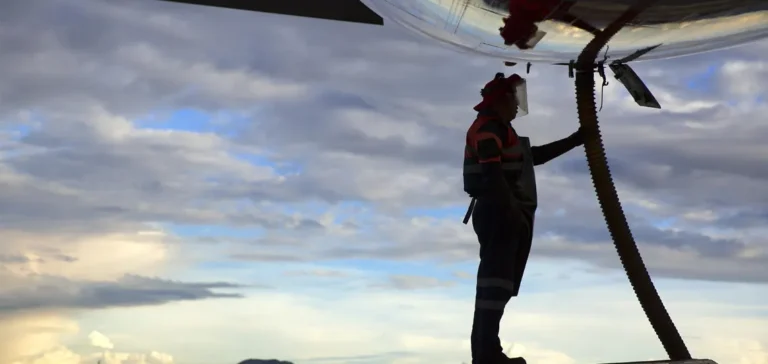Major European airlines have called on the European Commission to take urgent action to boost production of sustainable aviation fuels, warning they may be forced to seek a delay in meeting the 2030 targets. Represented by the group Airlines for Europe (A4E), they argue that current goals are unachievable without significant industrial support.
A regulatory target seen as unrealistic in the short term
Since January, the European Union has required that 2% of aviation fuel come from renewable sources, with a target of 6% by 2030. This share is expected to reach 70% by 2050. However, Luis Gallego, Chief Executive Officer of International Airlines Group (British Airways, Iberia), stated that the current production of sustainable aviation fuels, mostly located outside Europe, makes these targets difficult to achieve.
During a press conference, Gallego said the A4E group may be forced to officially request a postponement if “nothing extraordinary” happens soon. He noted that the regulatory obligations have not had the intended impact on local industrial output.
A call for strategic dialogue similar to the automotive sector
In a parallel statement, A4E called for the launch of a strategic dialogue between EU institutions and the aviation sector, mirroring discussions already underway with the automotive industry regarding the planned ban on combustion engine vehicles by 2035. Airlines stress the need to secure a competitive European supply of sustainable aviation fuels (SAF).
A4E represents 17 European airline groups, including Lufthansa, Ryanair, Air France-KLM and easyJet. All have committed to achieving net zero emissions by 2050, with SAF accounting for around 65% of the decarbonisation pathway set out by the global aviation industry.
Dependence on costly and non-European sources
SAFs are produced from organic waste, biomass, used cooking oils, or, in the longer term, through synthesis using hydrogen and decarbonised electricity. These processes remain expensive and their industrial deployment in Europe is still limited.
Kenton Jarvis, Chief Executive Officer of easyJet, stated that European governments must “take decisive action” to encourage major hydrocarbon producers to invest heavily in SAF. He said the industry does not oppose climate targets but needs a suitable industrial environment to meet them without jeopardising its competitiveness.
Air France-KLM urges immediate measures
Air France-KLM reiterated its goal of net zero emissions by 2050 and noted it is one of the largest SAF buyers in Europe. The group nonetheless called for “immediate measures” to ensure a sustainable and affordable market for these fuels, while warning against a potential “dumping” risk from non-European countries. It did not explicitly support a request to delay the current obligations.
Airlines have reaffirmed their commitment to meeting international climate goals, but have tied their feasibility to a swift institutional response to what is seen as an overly dependent external market.






















